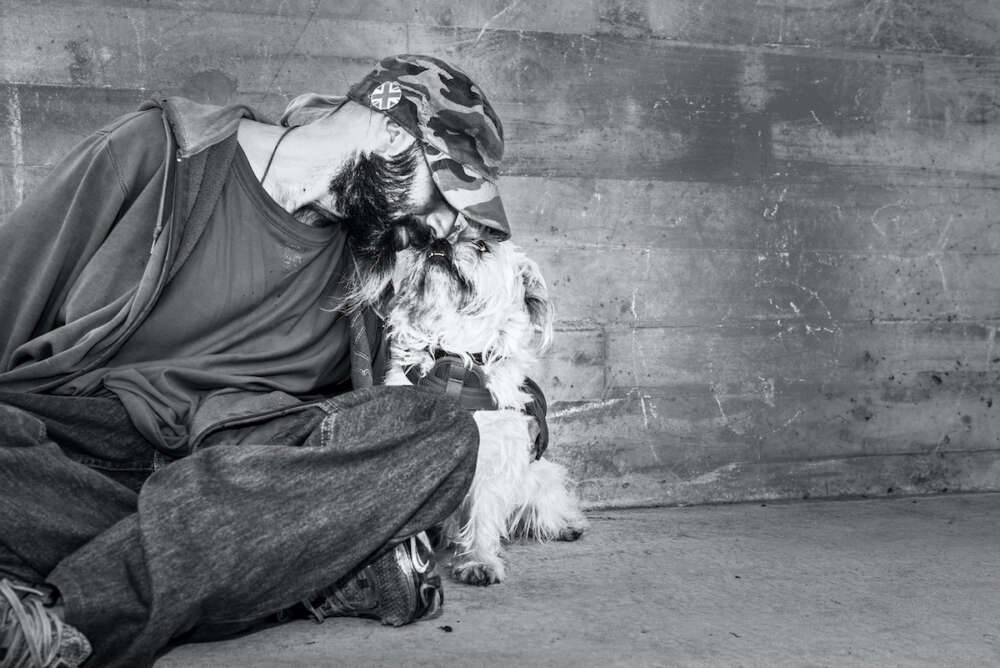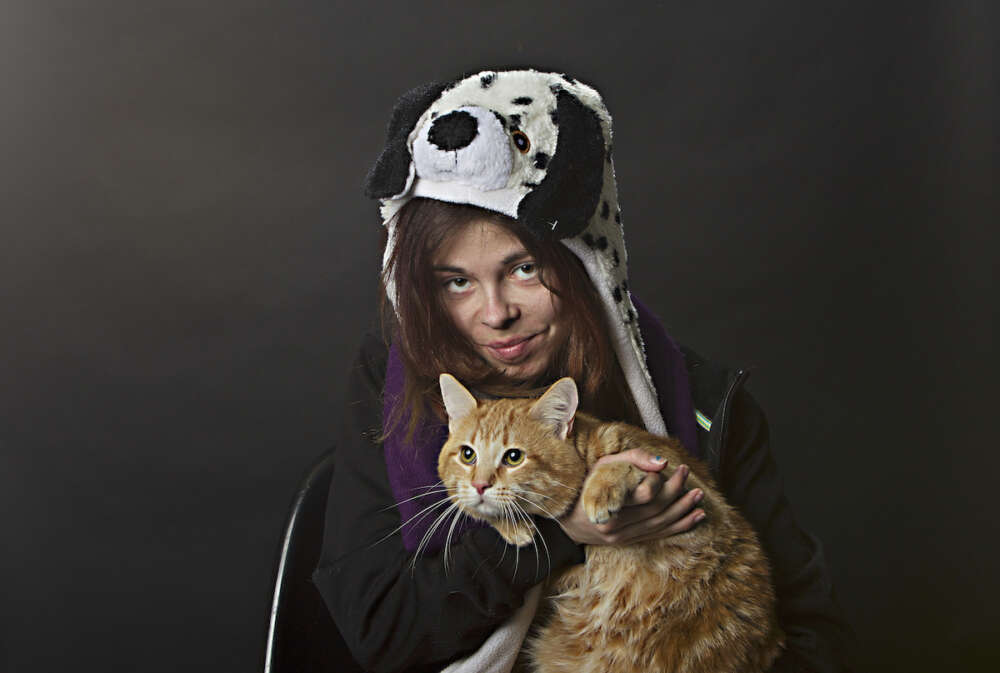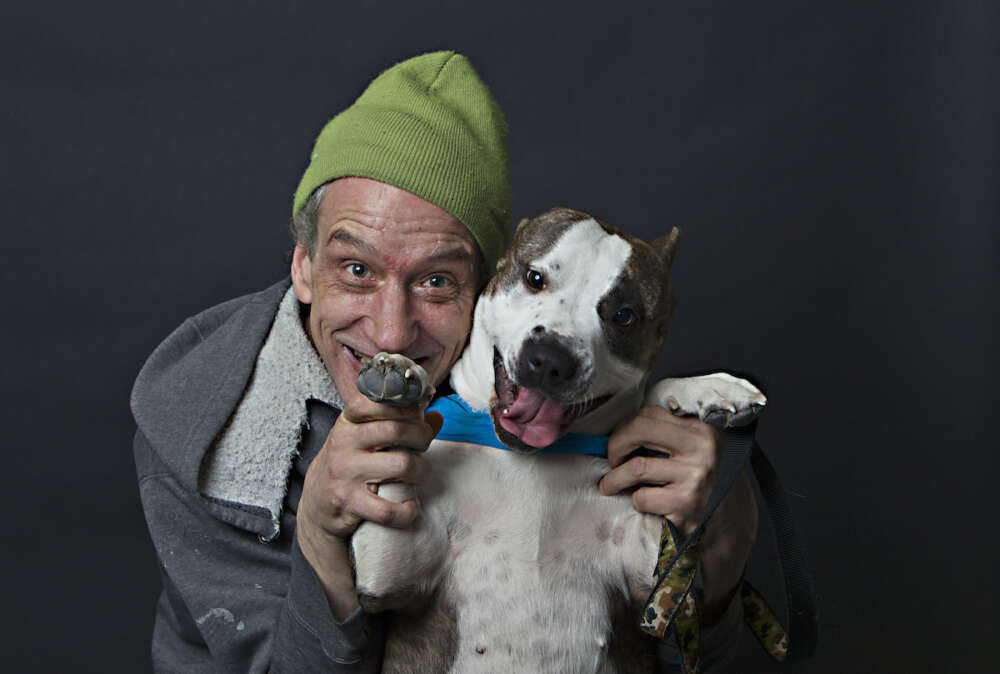
It would be a mistake to assume that a cat or dog owned by a homeless or vulnerably housed person is unhealthy, says a new study by the University of Guelph, the organization Community Veterinary Outreach (CVO) and the American Society for Prevention of Cruelty to Animals (ASPCA).
The study led by Dr. David Pearl in U of G’s Department of Population Medicine found these pets are just as healthy as other populations of owned pets — and even healthier in some cases.
The research is the first in Canada to explore the health status of the animals of those experiencing homelessness and housing vulnerability. The study was published recently in Preventive Veterinary Medicine.

“The big issue was that, especially among communities of people who are experiencing homelessness or vulnerable housing, there are all kinds of preconceived ideas that they don’t take good care of their pets and that their pets have unusual health problems,” said Pearl. “When you review the data, their pets are generally in very good health.”
Pearl said CVO asked him to conduct research that might assist the organization in caring for the pets of homeless and vulnerably housed owners. CVO was particularly interested to learn whether the health of those pets differed from other populations.
In Canada, according to the study, about 35,000 people experience homelessness each night, and between eight and 19 per cent are pet owners. These animal companions provide emotional support and companionship.
Using data collected between April 2018 and March 2020, Pearl and Dr. Shannon French, a member of his lab, studied the records of 1,124 dogs and cats examined by veterinarians at CVO clinics in four Ontario communities, as well as in Winnipeg. The records included information on patient history, the findings of physical examinations, body condition scores (BCS), and diagnostic and treatment recommendations.
“We were looking specifically at body condition scores, a measure of whether the pets are obese or emaciated,” Pearl said. “Generally, they looked very similar to other pets being seen in private practice. BCS was generally good, emaciation was exceedingly rare, obesity was either the same as pets seen in private practice or, in the case of dogs, a little bit lower.”

The body condition score scale has ratings from 1 to 9. A rating of 5 is ideal, 1 is extremely underweight and 9 is extremely overweight. The average BCS for both cats and dogs in the study was 5.4.
The researchers found that 39 per cent of dogs were overweight, less than the prevalence of obesity in most other studies of companion dogs, which is as high as 60 per cent.
Dr. Michelle Lem, founder of CVO, U of G grad and a co-author of the study, said the research directly challenges “stigmatizing and discriminatory” comments about low-income pet owners and a common public perception that these animals are mistreated or malnourished.
“We hope this research helps to cultivate empathy, compassion and support for this population of pet owners among animal health and welfare professionals as well as the public,” Lem said.
The study concludes that primary care veterinarians are well equipped to treat animals owned by those experiencing homelessness, given that they have similar health conditions to those of other owned pets, she added.
“As the veterinary profession grapples with solutions to addressing barriers to accessible veterinary care and more organizations seek to support humans and animals who are underserved in our communities, this research is a timely reminder that care delivery to this population of pets is not only doable, but worth doing.”
Dr. Margaret Slater, senior director, research, with the ASPCA, and a study co-author, said the study’s findings will help the organization’s efforts to encourage veterinarians to feel confident and comfortable offering care options for these pets.
“We hope our findings dispel some of the misconceptions and myths about pets belonging to vulnerably housed and homeless people and show that, as pet owners, they are willing and able to provide good care for their pets,” she said. “Veterinarians can consider if they are able to make accommodation for homeless or vulnerably housed clients or support other specially focused programs.”
Contact:
Dr. David Pearl
dpearl@uoguelph.ca